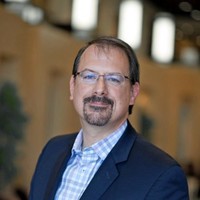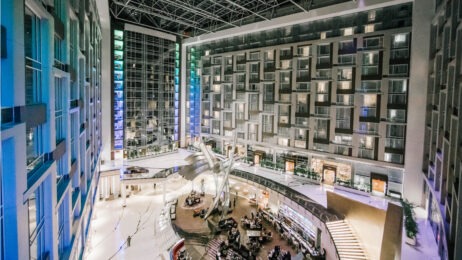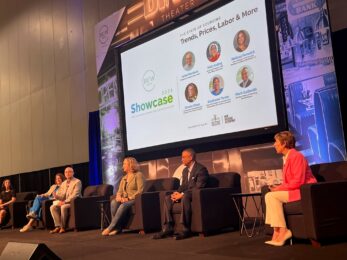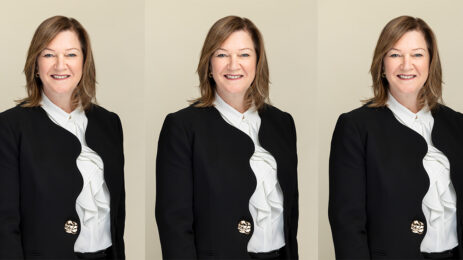Frustrated industry leaders brainstorm ways to get back to business
The most coveted amenity in the meetings and hospitality world right now is…confidence. For attendees, that translates to a sense of security they will be safe if they resume traveling…for meeting planners, a certainty that guidelines are correct…and for venues, peace of mind that the jurisdiction won’t reverse course and make them scrap plans in the works for months or years, and would have put hundreds of people to work at a time those jobs are desperately needed.
Confidence is turning out to be a scarce commodity as the weeks have dragged into months and meeting professionals are rebooking the rebookings. Hotels have executed multiple rounds of layoffs and attendees are settling in for an extended case of Zoom fatigue.
Smart Meetings gathered leaders from the planner, hotelier and association worlds for a frank discussion about what it will take to move ahead in a world that isn’t always clear in what direction forward might lie.
The Lay of the Land
The meetings landscape is uneven. Brad Weaber, moderator of Smart Meetings Editorial Advisory Board and principal with Brad Weaber Consulting Group, challenged the Hollywood Squares of hospitality insiders to describe what they are seeing out on the streets—and what it will take to restart an industry that the world relies on to get business done.

Don Welsh, president and CEO of Destinations International, the association for convention and visitors bureaus, has been on a road trip to see how each area of the country is responding. “I’ve always tried to reflect the positive, but COVID-19 was a setback for our industry,” he admitted with a shake of his head. He decided he needed to see how his members were doing.
More: Lessons from Leaders with Don Welsh
By the time of our conversation, he had been to 35 cities, masked and curious. “I have seen personally that life is returning, but we have a long haul in some of the larger cities that are dependent upon their corporate customers getting back in their offices. Meetings are so missed,” he reported.
Welsh has been traveling by car and on multiple airplanes. He’s had good experiences. “Airplanes are clean; they’re being very diligent. The air filtration systems are exceptional. If you deviate from wearing a mask, the crew will publicly call you out.”

Hotels and venues, too, are stepping up with protocols and GBAC STAR certifications, but, in many cases, no one is there to answer the meeting planner’s call. So many back-of-the-house staffers have been furloughed or laid off, and at the CVBs, which normally would step in, lack of funding has forced cuts as deep as 70 percent. “We have to support these partners with uniform guidelines,” he said.
From his Zoom box, nodding his head vigorously was Kevin Edmunds, vice president of meeting and incentive sales with AIC Hotel Group, which operates luxury properties in Miami, Mexico and the Dominican Republic—all bastions of incentive group travel. “Exactly,” he said. “Budgets have been slashed and requirements are changing daily. Until that consistency is across the board at every level of government, the confidence level will not come back to start spending again.”

From the front lines in Reno, Nevada, Mark McMinn, vice president of meeting and event sales with Grand Sierra Resort, sees pent-up demand on the leisure side, but he is restricted when it comes to bringing attendees back to the ballroom. “Our quandary is that people are willing to travel and use the amenities, but gatherings of more than 50 are verboten at this time. We have to explain to clients that we can do all the things to keep you safe, but we have to work within government mass gathering restrictions.”
In his role as vice president with Sodexo Conferencing, a Paris-based facilities management and event services company, Sean Anderson has a wider perspective. He is also global president for IACC, an association of independent venues all over the world. “We are more ready as an industry for what is next than people may realize,” he said. “The supply side is ready to build your programs, but there is too much confusion for buyers. There’s just too much unknown.”

Most of the people he talks to are paralyzed. They’re unable to get a handle on the possible outcomes. “If they knew what the risks were, they could make an informed decision,” he said. “But if you’re doing any events in the states, guidance is a local issue. If you’re trying to plan something seven counties away, there are a lot of different organizations and groups with restrictions and protocols that you have to understand and, frankly, I think that may be an unreasonable expectation.”
“Exactly,” agreed Marin Bright, Smart Meetings founder and the guiding force behind the 12 Smart Meetings Experiences all over the country in a normal year. She said she’s seeing the same dynamic at play. “We have an amazing list of planners who are ready to go, and we are the proud owner of pallets of plexiglass,” she continued. “We have our safety protocols down to a science, but suppliers are so tied up by furloughs and budgets they can’t participate in this amazing opportunity.”

The horizon isn’t any clearer on the meeting planner side. Megan Finnell, director of meetings and conferences with Medical Group Management Association (MGMA), which counts as its members more than 45,000 medical practice administrators, executives and leaders, held out as long as she could before cancelling her fall annual. “We are looking at our spring conferences in 2021 to try to put something together that might work in a socially distanced way, but the logistics are mind-boggling,” she said.
For a big show, she sends 100 staff. What if one staff member comes down with a fever and everyone’s quarantined in that destination? Does the organization pay for those hotel rooms and three room service meals a day? What if someone gets sick at the event? What’s the liability of her organization? Her team is trying to wrap its head around the implications without much official guidance for help.

“I’m in this crazy position of being in both worlds,” chimed in Faith Morris, chief marketing and external affairs officer with National Civil Rights Museum in Memphis, Tennessee. Her facility hosts corporations, organizations and families in addition to staging its own ambitious calendar of events on the site where Dr. Marin Luther King Jr. was assassinated. “The whole dynamic has changed. Everything has to be scaled back. Big elaborate dinners may have to be box lunches and tours for 500 people are not going to happen,” she shared. “We listen to the CDC and apply their counsel to our own practical understanding of what works here. I hear you on the frustration.”
A Light Ahead

Carol McGury, executive vice president of event and education services with the association management company SmithBucklin, was looking for examples. “Here’s the most important part of this formula right now: Confidence will come from showcasing best practices,” she said.
Edmunds seconded the call for face-to-face meetings to happen. Then people can see there is a way to meet safely in the midst of a pandemic—because the hesitancy will live on beyond the announcement of a vaccine. “We need to start,” he said.
The pioneers may be outside the United States. Eduardo Chaillo, global general manager for Latin America with Maritz Global Events, said creative event programs are already happening in other parts of the world. He is seeing multihub hybrid events where small groups gather in sizes they feel comfortable with, linked in to other groups participating in the same content experience and still others watching from their homes. One example: International Congress and Convention Association (ICCA), which just launched its annual Transforming Global Events Together with a central hub on the original host city of Kaohsiung, Chinese Taipei, and six other hubs scattered all over the world for six weeks of education and conversation. “I think we will see a lot more of that,” he predicted.
Anderson backed up Chaillo’s observation with data from IACC’s Critical Pathway to Re-opening Conference, Meetings and Training Venues research. “Small and mid-size regional, drive-in meetings will carry us through to 2021,” he said.
Despite the ominous clouds, MGMA’s Finnell was optimistic about the future. “We’re learning new skills and new ways to work,” she said. “It’s exhausting, but at the same time exciting because on our team everyone has risen to the challenge and innovated so much for the virtual environment. Now, we’re ready to start seeing how we can apply these learnings to face-to-face environments and inform both ways for omni-channel events.”
One thing she can predict. “The way we look at business for the future is forever changed. This has been hard and anxiety-filled because everything we know and love is gone. We’ve all been climbing this mountain, and the mountain collapsed under us. But the future is exciting.”
The Great Talent Suck

Our fearless moderator ended the conversation with the question that could determine the future of the industry for generations to come. “We’re seeing an incredible vacuum pulling talent away from our industry. How will we replace the intellectual capital that’s leaving?” Brad Weaber asked.
The group speculated that the departure of all those veterans for greener pastures may bring an influx of young energy and a different kind of hybrid dynamic—multigenerational talent working together. Those who stay may need to do some quick “reskilling,” as the young kids say.

Carl Winston, director at San Diego State University Robert Payne School of Hospitality & Tourism Management, was optimistic. “I think there will be more jobs in 2022 than 2019, but the jobs will be called production, post-production and the like. We need producers, not order takers.”
He praised the “green shoots and opportunity” out there for people who understand the importance of delivering events that can compete with Netflix and broadcast television—by hiring the talent you see in the credits at the end of a show and baking in a high standard of production values.
Winston pointed out that hybrid meetings are nothing new. “Sporting events have always delivered entertainment to in-person and television audiences. We need to steal ideas from them,” he said. “If we don’t embrace entertainment principles in our events, then we are fools, and we are leaving a ton of money on the table.”




